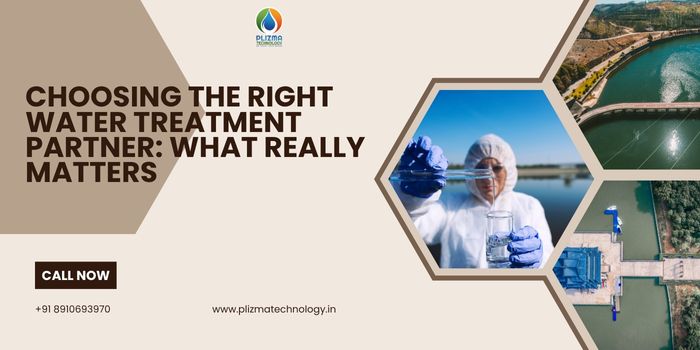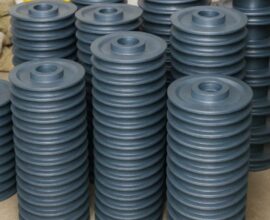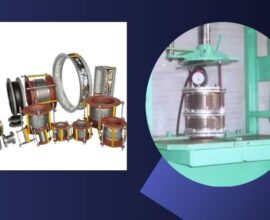Thinking about investing in a water treatment solution? Before signing any deal, it’s crucial to evaluate whether the manufacturer you choose truly understands your needs. The market is full of options but not every company delivers on quality, efficiency, or long-term reliability. Selecting one of the best water treatment plant manufacturers can make the difference between years of seamless operation and constant maintenance headaches.
Why Choosing the Right Manufacturer Matters?
Water treatment plants are long-term investments that directly impact operational costs, environmental compliance, and community health. According to data from the U.S. Environmental Protection Agency (EPA), well-designed treatment systems can reduce industrial water wastage by up to 40%. That efficiency, however, depends heavily on the manufacturer’s expertise and technology. So, choosing wisely is not just a technical decision it’s a sustainability strategy.
Essential Factors to Consider Before Selecting a Water Treatment Plant Manufacturer
1. Experience and Technical Expertise
Experience isn’t just a number it reflects years of problem-solving, design innovation, and customer satisfaction. Reputable manufacturers have a proven record of designing systems that cater to specific industries like pharmaceuticals, textiles, or food processing. Ask how long they’ve been in business and what kind of projects they’ve handled.
2. Quality of Components and Technology Used
Cutting-edge filtration membranes, corrosion-resistant materials, and automated controls ensure longer lifespan and minimal downtime. The United Nations Water Decade report emphasizes the importance of advanced technology in sustainable water management. Manufacturers using old or generic systems may compromise performance, leading to costly repairs later.
3. Compliance and Certifications
Always verify if the manufacturer complies with environmental and safety standards such as ISO 9001 or BIS certifications. These credentials guarantee that the design and production meet both domestic and international quality norms. Non-compliance could lead to operational or legal issues down the line.
4. Customization Options
No two industries have identical water treatment needs. The right water treatment plant provider should offer tailor-made solutions rather than one-size-fits-all systems. Whether you need zero-liquid discharge, effluent recycling, or high-purity RO plants, flexibility is key to achieving efficiency.
5. After-Sales Support and Maintenance
Reliable after-sales service separates great manufacturers from average ones. Look for companies that provide installation assistance, staff training, and periodic maintenance visits. A responsive service team can help prevent breakdowns and prolong equipment life.
6. Cost vs. Value
While cost matters, it shouldn’t be the only factor. A cheaper system may seem attractive upfront, but poor durability and efficiency can double your expenses later. Focus on long-term value energy savings, lower maintenance, and consistent output often justify a slightly higher price tag.
7. Sustainability and Environmental Responsibility
Modern water treatment is not just about purification it’s about preservation. Eco-conscious manufacturers integrate green technologies like energy-efficient motors, sludge minimization, and water reuse features. Choosing such partners aligns your organization with global sustainability goals.
Questions to Ask Before You Finalize
- Can they share references from previous clients in similar industries?
- What kind of warranty and post-installation training do they provide?
- Are their spare parts easily available and affordable?
- How do they handle system upgrades or capacity expansions?
How to Evaluate the Best Fit for Your Needs?
Take time to visit the manufacturer’s plant or request a virtual tour. Observe their production standards, material handling, and safety protocols. Discuss your specific requirements in detail and evaluate how flexible their design team is. For more insights, explore Needs For Choosing the Right Partner for Your Water Treatment Needs to understand how proper evaluation ensures successful project outcomes.
Additional Considerations
- Local Presence: Manufacturers with offices or service teams near your facility ensure faster support.
- Innovation: Look for R&D-driven companies constantly improving water purification methods.
- Reputation: Check client testimonials and case studies to gauge credibility and satisfaction.
Frequently Asked Questions (FAQ)
1. What are the main types of water treatment plants?
Common types include reverse osmosis (RO), effluent treatment plants (ETP), sewage treatment plants (STP), and zero-liquid discharge systems. Each serves specific industrial or residential needs.
2. How can I verify if a manufacturer is genuine?
Check certifications like ISO, customer testimonials, and registered company details. Visiting their site or requesting a demo adds another layer of assurance.
3. Are customized systems better than standard models?
Yes. Custom systems are designed around your specific water quality and flow requirements, ensuring better performance, efficiency, and compliance.
4. How often should a water treatment plant be serviced?
Ideally, major maintenance should be performed every 6 to 12 months, depending on system type and usage intensity.
Final Thoughts
Choosing the right water treatment plant manufacturer isn’t a quick decision it’s a strategic one. Evaluate technical capability, transparency, and long-term support before finalizing. The right partner doesn’t just sell a machine; they provide peace of mind, operational stability, and a sustainable future.





